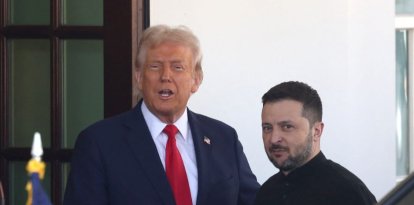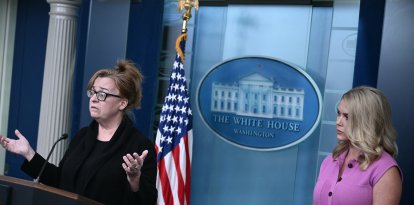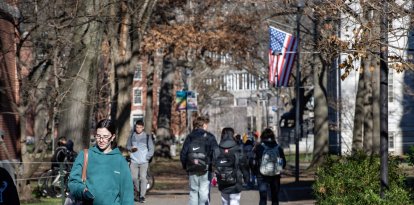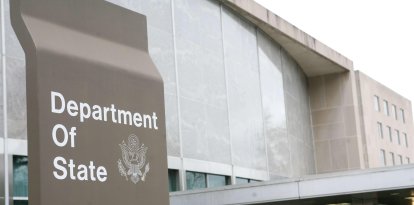After Biden's resignation, what will happen now with the Democratic nomination?
Whoever wants to be the nominee will have to garner the support of the delegates.
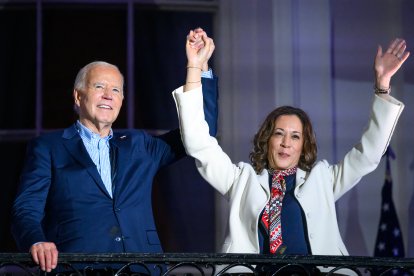
Will Kamala Harris keep the Democratic nomination? Likely, but not certain
With President Joe Biden officially out of the race, Democrats are treading uncharted waters with less than five months until the next election.
At the moment, there is no official candidate, although the logical path is none other than Vice President Kamala Harris, who received Biden's backing this Sunday.
However, the situation is unclear and there are still Democrats who may challenge Harris' candidacy. What exactly will happen?
An unusual Democratic National Convention
Biden's support for Harris gives him an obvious advantage in the nomination fight. Now, that doesn't necessarily mean the vice president will be the nominee.
While the Democratic president won the primary without batting an eye and facing nominal opposition, Biden is not yet the official Democratic nominee and cannot decide who the nominee will be despite being the president and the candidate with the most votes at the polls.
This is because, generally, in primaries, voters do not choose a candidate directly but through a process whereby state delegates are sent to the national party convention. These delegates ultimately choose the nominee, as happened recently at the Republican National Convention, where Donald Trump and his running mate, JD Vance, accepted the GOP nominations.
Now, the Democratic convention is scheduled for next month, August 19-22, in Chicago. But there's a problem. Democrats are concerned because they want to submit their official nominee before August 7, the deadline for submitting each party's nominee in Ohio. Democrats argue that if they do not file the nominee by that date, they could run out of presidential representation on the Ohio ballot or face costly legal battles with Republicans.
Beyond that pointed discussion, however, Democrats want to avoid any eventuality and hold a "virtual" roll call vote to name their nominee early in the month. The Democratic National Committee is set to vote on whether to proceed with such a plan that was announced in May, when Biden was the party's firm nominee.
But now, with Biden out, the president's nearly 3,800 delegates have become free to decide. Even if these people pledged to vote for Biden, under DNC rules, they are under no obligation to vote for a successor chosen by Biden.
For this reason, in order for Kamala Harris to secure her candidacy, her team must call and talk to each of the state delegates to secure them, either for a virtual roll call vote or an open convention election in Chicago.
What will it take to challenge Kamala Harris' candidacy?
Technically, any Democrat who gathers enough signatures to be nominated can challenge Kamala Harris' candidacy.
According to POLITICO, candidates need the signatures of at least 300 delegates, but no more than 600, to run. Delegates can only sign one candidate's petition, and, as an extra requirement, a candidate can submit no more than 50 delegates from any one state, a filter that ensures that all candidates submitted gain support from a broad swath of the country and not from a particular state.
Since there are some 4,700 delegates, the maximum possible candidates would remain at approximately 15. However, it is unlikely that there will be that many candidates as the Democrats will undoubtedly seek to avoid a messy election.
An important point is that, of those 4,700 delegates, nearly 4,000 are delegates awarded in accordance with the results of the presidential primaries earlier this year. Biden won 95% of these delegates, but they are no longer pledged.
The other 750 "automatic" delegates, also known as "superdelegates," are party leaders and former VIPs, such as former presidents (Barack Obama, Bill Clinton and Jimmy Carter) and former DNC chairs, who can now only vote in later rounds if no candidate gets a majority on the first ballot. This could be the case if a Democrat puts up a competitive bid against Harris.
Technically, Harris could face resistance. But is there political will?
At the moment, the Democratic Party seems perfectly fine with taking the "logical" choice to replace Biden and anoint Harris as its nominee. However, there is one dissenting voice, or at least one that suggested a different path: former President Barack Obama.
In a lengthy statement, Obama praised Biden for stepping aside. However, unlike the Clintons and other prominent Democrats like Gavin Newsom, the former president did not mention Harris and instead said that party leaders should devise a process to pick the strongest candidate.
Basically, Obama suggested he supports an open convention where, among other things, there could be a Democratic nominee who has Obama's backing.
"We will be navigating uncharted waters in the days ahead. But I have extraordinary confidence that the leaders of our party will be able to create a process from which an outstanding nominee emerges," Obama wrote in a post on Medium.
Meanwhile, some media outlets such as CNN report that there are many Democrats in anticipation of how Harris performs in the coming days and what the polls show. Many politicians know they are, perhaps, facing a unique opportunity to take an unexpected nomination and compete for the White House.
So far, according to host Jake Tapper, one of those reportedly weighing a challenge against Harris is independent Senator Joe Manchin, a former moderate Democrat who left the party after complaining about the Democrats' leftward shift.
Sources close to Sen Joe Manchin, independent of WV, say he's considering re-registering as a Democrat and throwing his hat into the ring
— Jake Tapper (@jaketapper) July 21, 2024
However, it is still too early to tell whether or not challenges will emerge against Harris, who now appears to be the Democrat best positioned to take her party's nomination and face Donald Trump in November.

Opinion
Four thoughts on Biden's withdrawal from the presidential campaign and what's ahead
Vanessa Vallejo
RECOMMENDATION
